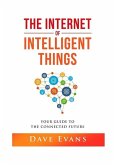Artificial Intelligence (AI) and Machine Learning (ML) are transforming various aspects of our lives, from personalized recommendations on streaming platforms to advanced algorithms in smartphones. At the heart of AI is the ability to create intelligent machines that can perform tasks requiring human-like intelligence, such as learning and decision-making. Machine learning, a subset of AI, enables computers to learn from data without explicit programming, identifying patterns and improving performance over time. Neural networks, inspired by the human brain, are particularly effective in tasks like image and speech recognition, showcasing the potential of AI to revolutionize industries, including healthcare, transportation, and entertainment. However, the rise of AI also brings ethical challenges, such as algorithmic bias and lack of transparency in decision-making processes. These concerns are particularly significant in sensitive areas like hiring and criminal justice, where biased algorithms can lead to unfair outcomes. As AI technology continues to evolve, it is crucial to address these ethical implications to ensure responsible use that benefits society as a whole. The future of AI holds immense promise, with potential advancements in personalized medicine, autonomous vehicles, and creative industries, but it requires careful consideration of its societal impacts and the development of robust ethical frameworks. Hydrogen fuel cells present a promising solution for sustainable energy, particularly in transportation, power generation, and various industrial applications. They offer advantages such as zero emissions, quick refueling, and the ability to store energy from renewable sources, addressing challenges like intermittent energy supply. However, significant hurdles remain, including the energy-intensive production process, storage, and transportation complexities. Ongoing research aims to enhance efficiency and reduce costs, while advancements in energy storage technologies, such as lithium-ion and alternative batteries, are crucial for integrating renewable energy into existing grids. The future of hydrogen fuel cells and energy storage technologies is vital for achieving a cleaner, more resilient energy system.
Hinweis: Dieser Artikel kann nur an eine deutsche Lieferadresse ausgeliefert werden.
Hinweis: Dieser Artikel kann nur an eine deutsche Lieferadresse ausgeliefert werden.








